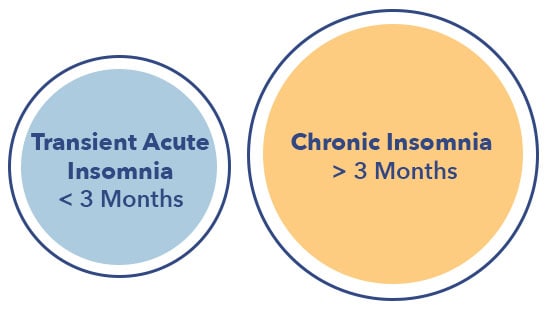Between 10 and 30 of adults struggle with chronic insomnia or other sleep disorders which rises to 30 to 48 for older adults

Between 10% and 30% of Adults Struggle with Chronic Insomnia or Other Sleep Disorders

Sleep is an essential aspect of our daily lives. It rejuvenates the body, helps consolidate memories, and restores energy levels. We spend approximately one-third of our lives asleep, yet for many individuals, a good night’s sleep remains elusive. Insomnia and other sleep disorders affect a significant portion of the adult population, with prevalence rates ranging from 10% to 30% for adults and increasing to 30% to 48% for older adults1^.
Insomnia is a sleep disorder characterized by persistent difficulty in falling asleep, staying asleep, or experiencing non-refreshing sleep. Those who suffer from chronic insomnia often find their quality of life and overall well-being compromised. In addition to feeling fatigued and lethargic during the day, individuals with insomnia may experience mood disturbances, such as irritability and depression, as well as cognitive impairments, including difficulty concentrating and making decisions.
Various factors contribute to the development of insomnia and other sleep disorders. Stress, anxiety, depression, and poor sleep hygiene are some common triggers. Lifestyle choices, like consuming excessive caffeine, nicotine, or alcohol, can also disrupt sleep patterns. Additionally, certain medications or medical conditions, such as chronic pain or sleep apnea, may contribute to sleep disturbances.
It is important to address sleep disorders promptly, as they can have long-lasting effects on physical and mental health. Fortunately, effective treatments exist to help individuals overcome insomnia. Non-pharmacological approaches, such as cognitive behavioral therapy for insomnia (CBT-I), can be highly beneficial. CBT-I aims to identify and modify negative thoughts and behaviors surrounding sleep, promoting healthier sleep practices and improving sleep quality.
In some cases, medical intervention may be necessary, such as prescribing sleep aids. However, these should only be used under the guidance of a healthcare professional, as they can have potential side effects and risks. It is crucial to prioritize natural and healthy sleep habits before considering medication.
Sleep plays a fundamental role in our overall well-being. By acknowledging and addressing sleep disorders, we can enhance our quality of life and improve our daily functioning. If you or someone you know struggles with chronic insomnia or other sleep disorders, seeking professional help can provide valuable support and guidance in achieving restful nights and restoring optimal health.
Source:
Tags
Share
Related Posts
Quick Links
Legal Stuff


